1) Pointers are not arrays. Arrays are not pointers. Don't think of them that way because they are different.
How can I prove this? Think about what they look like in memory:
Our array arr is 10 characters long. It contains "Hello", but wait, that's not all! Because we have a statically declared array longer than our message, we get a bunch of NULL characters ('\0') thrown in for free! Also, note how the name arr is conceptually attached to the contiguous characters, (it's not pointing to anything).

Next consider how our pointer would look in memory:
 Note here we're pointing to a character array some place in read only memory.
Note here we're pointing to a character array some place in read only memory.
So while both arr and ptr were initialized the same way, the contents/location of each is actually different.
This is the key point:
ptr is a variable, we can point it to anything, arr is a constant, it will always refer to this block of 10 characters.
2) The [] is an "add and deference" operator that can be used on an address. Meaning that arr[0] is the same as saying *(arr+0). So yes doing this:
printf("%c %c", *(arr+1), *(ptr+1));
Would give you an output of "e e". It's not because arrays are pointers, it's because the name of an array arr and a pointer ptr both happen to give you an address.
Key point to #2: The deference operator * and the add and deference operator [] are not specific to pointers and arrays respectively. These operators simply work on addresses.
3) I don't have an extremely simple answer... so let's forget our character arrays for a second and take a look at it this example for an explanation:
int b; //this is integer type
&b; //this is the address of the int b, right?
int c[]; //this is the array of ints
&c; //this would be the address of the array, right?
So that's pretty understandable how about this:
*c; //that's the first element in the array
What does that line of code tell you? If I deference c, then I get an int. That means just plain c is an address. Since it's the start of the array it's the address of the array and also the address of the first element in the array, thus from a value standpoint:
c == &c;
4) Let me go off topic for a second here... this last question is part of the confusion of address arithmetic. I saw a question on SO at one point implying that addresses are just integer values... You need to understand that in C addresses have knowledge of type. That is to say:
iarr+1; //We added 1 to the address, so we moved 4 bytes
arr+1; //we added 1 to the address, so we moved 1 byte
Basically the sizeof(int) is 4 and the sizeof(char) is 1. So "adding 1 to an array" is not as simple as it looks.
So now, back to the question, why is arr+1 different from &arr+1? The first one is adding 1 * sizeof(char)=1 to the address, the second one is adding 1 * sizeof(arr)=10 to the address.
This is why even though they are both "only adding 1" they give different results.

 Note here we're pointing to a character array some place in read only memory.
Note here we're pointing to a character array some place in read only memory.